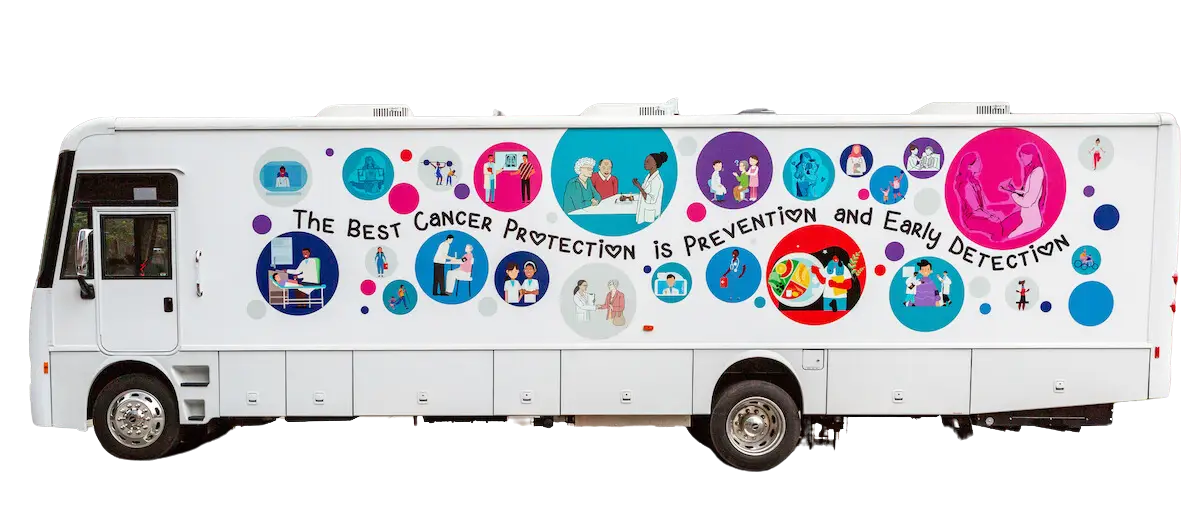Education: Skin Cancer
Skin cancer is the most common type of cancer
The main types of skin cancer are squamous cell carcinoma, basal cell carcinoma, and melanoma.
Melanoma is much less common than the other types but much more likely to invade nearby tissue and spread to other parts of the body.
Types of Skin Cancer
- Skin cancer is a disease in which malignant (cancer) cells form in the tissues of the skin.
- Basal cell carcinoma and squamous cell carcinoma of the skin, also called nonmelanoma skin cancer, are the most common forms of skin cancer. Most basal cell and squamous cell skin cancers can be cured.
- Melanoma is more likely to spread to nearby tissues and other parts of the body and can be harder to cure. Melanoma is easier to cure if the tumor is found before it spreads to the dermis (inner layer of skin). Melanoma is less likely to cause death when it is found and treated early.


Screening for Skin Cancer
There is no official recommendation from the American Cancer Society for early detection of skin cancer, but most doctors will recommend checking your own skin once a month, especially if you are at a higher risk of developing skin cancer.
A visual self-exam by the patient and a clinical examination by the health care provider may be used to screen for skin cancer. If an area on the skin looks abnormal, a biopsy is usually done.
Symptoms of
Skin Cancer
Basal Cell Carcinoma
Areas on the skin that look like scars, lumps or nodules that are shiny or have visible blood vessels; crusty, itchy patches of skin that may bleed or have a depression in the middle; or red patches of skin that look like eczema.
Squamous Cell Carcinoma
Any sore that does not heal or comes back after healing; rough-feeling growths/bumps that get crusted over and bleed; patches of skin that are flat, scaly, and red; or white spots in the mouth, on the tongue, gums, or cheeks.
Melanoma
Can present as moles, scaly patches of skin, open sores, raised bumps, or black marks under finger or toenails. Use the ABCDE memory device to spot the warning signs of melanoma on the skin: Asymmetry, Border, Color, Diameter, Evolution, or the Ugly Duckling method, where any mole or marking that does not look like the others on your body is worth getting checked by a dermatologist.

Skin Cancer Resources
DID YOU KNOW?
ScreenNJ Screening Statistics
the Garden State
findings detected
Why Should You Get Screened?
One in two men and one in three women will develop cancer in their lifetime
Early diagnosis of cancer offers the best chance for successful treatment. When cancer care is delayed or inaccessible there is a lower chance of survival, greater problems associated with treatment, and higher costs of care.
Visit our Education page to learn more about various cancer types and screening options.
Types of Screenings Available:
- Breast Cancer
- Cervical Cancer
- HPV-Related Cancers
- Colorectal Cancer
- Genetically-Linked Cancers
- Lung Cancer
- Prostate Cancer
- Skin Cancer
Get the Assistance you need
Learn More About Patient Navigation
Patient navigators are trained, culturally competent healthcare professionals who work with patients, families, physicians and other healthcare providers to ensure cancer patients’ needs are appropriately and effectively addressed.
Get connected to a navigator to gain assistance with qualification, scheduling, transportation, and more.
Discover our mobile health unit
Free Cancer Screenings and Care Coordination for the uninsured and under-served across New Jersey
Now Offering:
- Patient navigation for care coordination
- Education and outreach
- Supportive services to address social determinants of health
- History and physical examinations
- Laboratory testing
- Referrals and authorizations


Who Qualifies for Screening?
The New Jersey Cancer Education and Early Detection Screening Program (NJCEED) is part of the New Jersey Department of Health.
NJCEED provides comprehensive screening services for breast, cervical, prostate, and colorectal cancer. The services include education, outreach, early detection, case management, screening, tracking, and follow-up. Breast, cervical, prostate, and colorectal cancers can be treated more effectively when found early.
Persons eligible for these services must be at or below 250% of the Federal Poverty Level and be uninsured or under-insured. For more information, please call 1-800-328-3838 or locate a screening location here.
Screening for cancer is covered with no deductible or co-pay by many insurance plans including Medicare, and patients with no insurance may be able to receive recommended cancer screenings at their NJ CEED agency or at other ScreenNJ partner sites. Visit our Frequently Asked Questions page to learn more.
